It could be argued that the title of Tony Zosherafatain and Jamie DiNicola’s four-part doc-series Trans in Trumpland has lost some of its urgency, but that would be an overhasty conclusion. Filmmakers will deal with the last four years in various ways, for decades to come, and the series would be interesting as a historical document alone. But then again, Trumpism seems to be here to stay, at least for the time being. As director Zosherafatain relates to S/W about the project, “At its core, the series is about these enduring foundational inequalities and structures in our country and the policies that unfortunately are still here, and they’re actually getting worse,” because of different laws in various states.
Trans in Trumpland is executive produced by Trace Lysette (Transparent, Hustlers) and was released on February 25th on First Look Media’s streaming service Topic. In our interview, Tony and Jamie talk about why they decided on releasing Trans in Trumpland as a four-part series, how making short films helped them to form their production company TransWave Films and what advice they would give aspiring (documentary) filmmakers looking to find their voice.
Trans in Trumpland has had an interesting conceptual journey. It started out as four documentary shorts that were supposed to be combined as a feature, but then you decided to release them as a four-episode series instead. Can you take me through the process from the initial idea and motivation to its eventual release on Topic?
TONY: I know not all TV series take this route, so it’s been an interesting journey that we took with Jason [Jason B. Kohl, The Slaughter] together. I started out conceptualizing it in 2016, the first week that Trump took office. I was very uncertain about the future, very shocked, very sad, and I thought to myself, what exactly can I do as a filmmaker to help educate people and maybe just change the narrative? I had a feeling that the next four years were going to be really bad. Then three days after he won, the title Trans in Trumpland just popped into my head randomly out of nowhere and I thought to myself, what exactly would this entail?
As time moved on and he began attacking many different marginalized communities, I thought what I could do is use my skills as a filmmaker to make a feature film where I share my story but also highlight people who don’t have the privilege I do. As someone who lives in the New York City area, I have a lot of legal protections here, and a lot of states in the country don’t have trans equality protections. So I knew that would be the conceptual idea and I was this host/protagonist who glues everyone together.
“It might get acquired and be better as a four-episode documentary series”
It was intended as a feature. We went into it, Jamie and I, conceptualizing it as a feature. When we began editing in early 2020, we signed on Andrew Herwitz, our sales agent, and Andrew said to us, “Well, listen, it might get acquired and be better as a four-episode documentary series.“
At first, Jamie and I were a little bit hesitant, because this was going to be a really big feature for us and we had done mostly shorts before that. But then we realised that instead of combining them at the end, we can just give every character and every state its own 30 minutes and cut it that way. This was new territory for Jamie and I and in a way, we got lucky because when corona hit everyone was trying to buy up [content] with the lack of festival premieres and whatnot. So that’s how we got to this point and I’m actually pretty happy that it’s four episodes now.
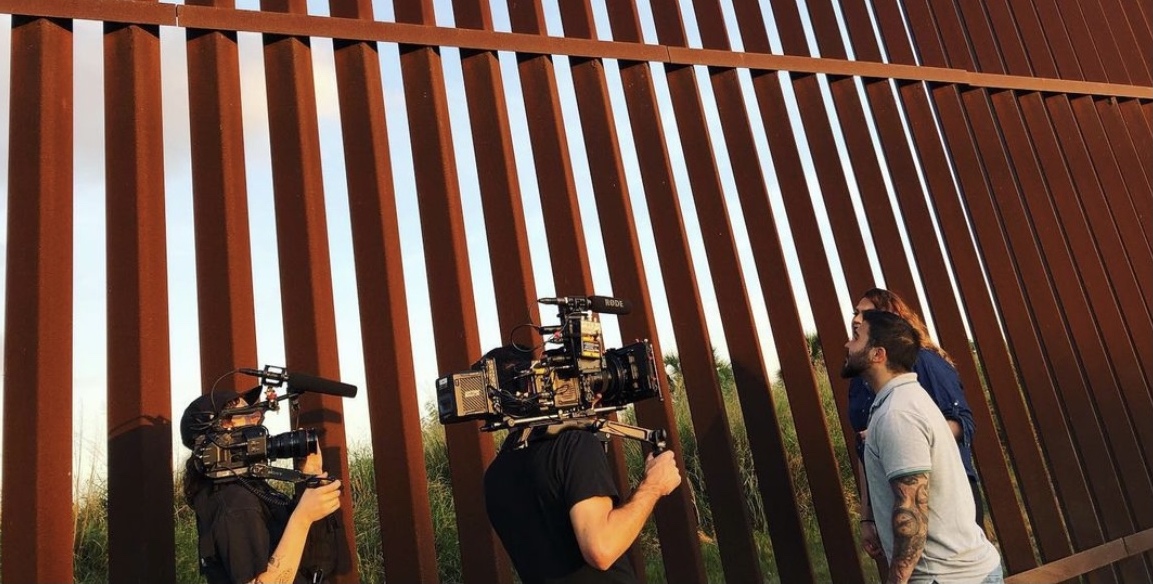
Tony Zosherafatain with Episode 2 protagonist Rebecca, at Trump’s border wall.
Do you think, if you compare a 90 or 100 minutes long feature film to four 27-30 minute episodes, no matter the subject matter, that it might be easier to lure certain viewers in? Do you think that changed something in your narrative focus?
TONY: I think if this had been cut as a feature, it may have been acquired, but it’s just tough with festivals now. I also think that having around 27 minutes for each of the four episodes, it gives more time for the characters to have their stories fleshed out because we didn’t have that time constraint. What it does is that it allows people to get sucked into the pilot, but there are also some questions that aren’t answered. I intentionally wanted to end every episode in a way that hooked people in, similar to how Tiger King or Indian Matchmaking, did on Netflix, always ending with a bit of a cliffhanger.
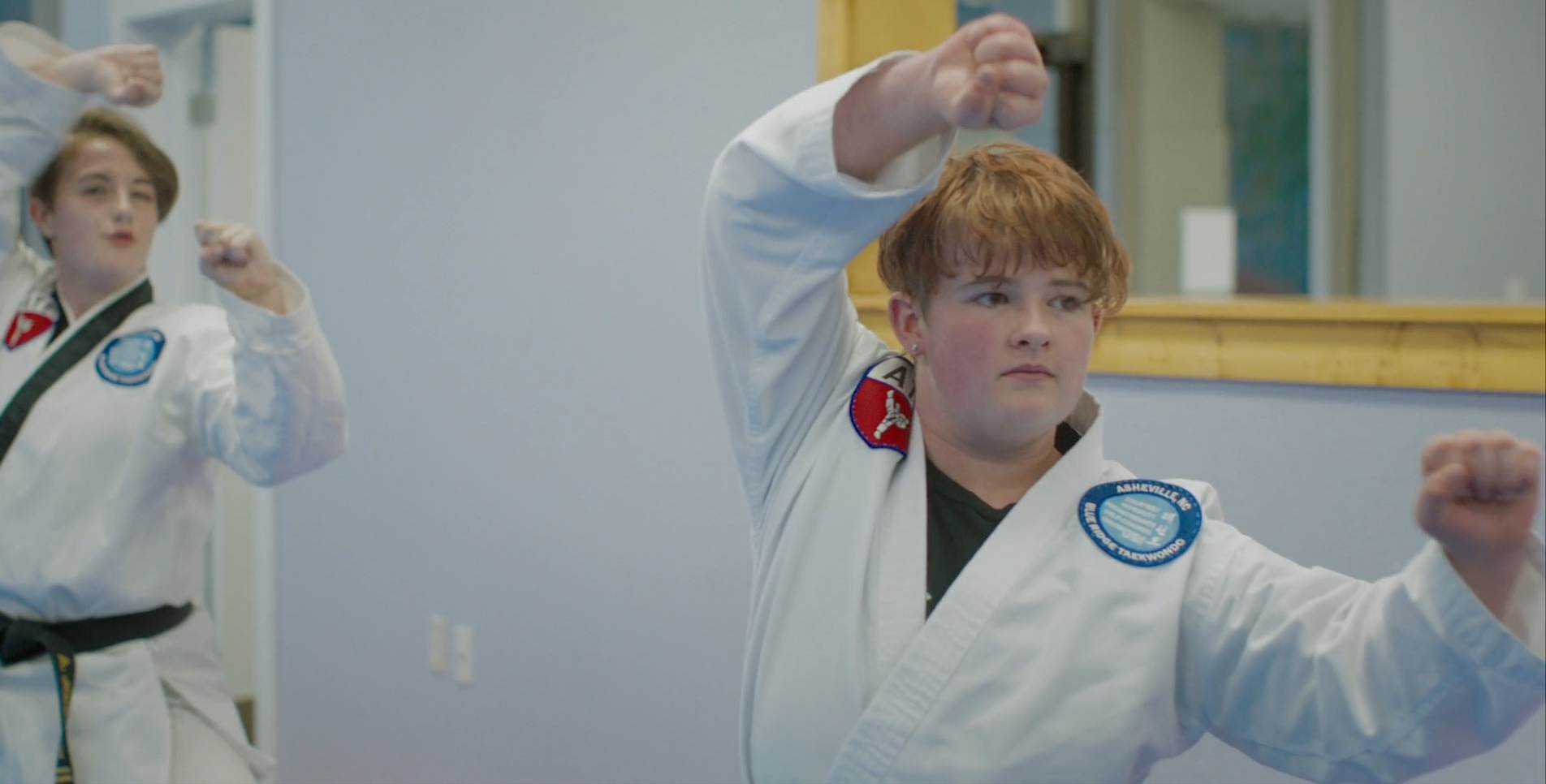
Ash in Episode 1 of Trans in Trumpland
Do you think there’s a difference between a short series and a series of shorts?
TONY: I think it is different to cut four shorts versus a series. The approach we took in editing, it worked in tandem, especially during the middle of editing with Jason, when we had a rough cut of every episode and we realized that we could just cut it as shorts and then my part came in later.
“We simply cut them as shorts”
When we fleshed out everyone’s episodes more, we realized the motherhood theme is really strong, so what we did was we simply cut them as shorts and we’d get everyone together through me as a host. I think that it was an interesting way to think about how can we approach every storyline as a short and then put the series together as four.
Can you tell me more about the collaboration with Topic? Because I personally think it’s a great fit and would like to learn more about how you decided to work with that particular streaming service.
JAMIE: I think because we didn’t have a festival run and we were really into the idea of getting it on a streaming service, especially as a doc series, Topic was a really good fit for us. They tend to work with storytellers that are telling stories about their communities and they’re really into authentic storytelling. So it works for Tony and I because of our production company TransWave Films – we’re trans-run and trying to tell authentic trans stories. And I think we were able to do that successfully with this series because the characters really trusted us on a level that they might not have if Tony didn’t share as much in common with them as he did.
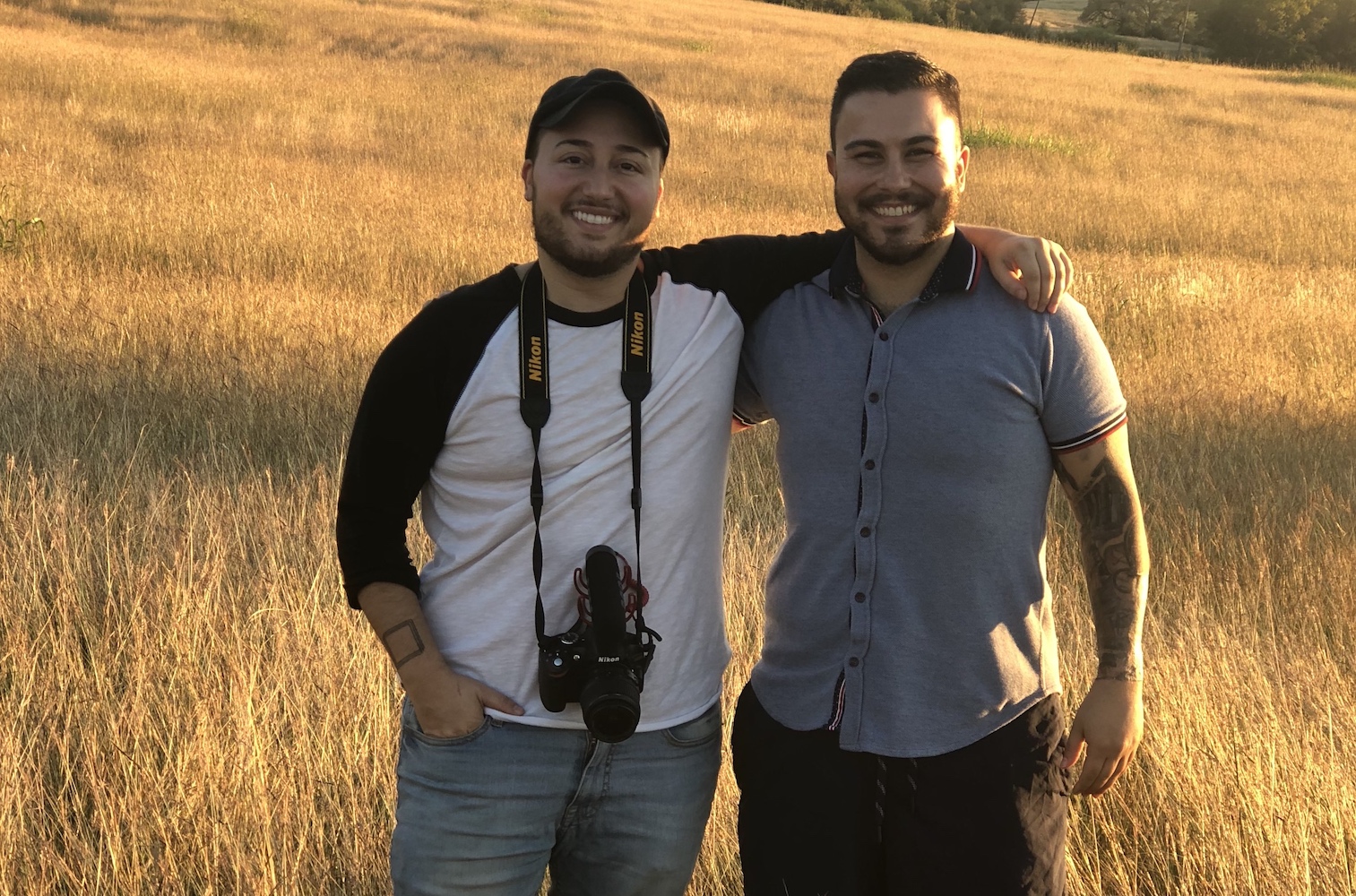
Jamie DiNicola and Tony Zosherafatain on the set of Trans in Trumpland
TONY: What we realized with Topic, is that we were very impressed that their parent company is First Look Media. I’m a big fan of Spotlight, for example, and Jamie and I also want to work with First Look Media in the future. Then, what I also liked about Topic, versus other interested parties, was that they are available on Amazon Prime, and Apple TV, and Roku. Everyone has Netflix, but Prime and Apple TV are very accessible, especially during this pandemic era when people are at home and have a lot of time. So it was a win-win for Jamie and I.
In your experience, what are the advantages of focusing in on the message you want to convey in a short doc compared to a longer arc? What advice would you give aspiring documentary filmmakers looking to share their point of view with short films?
TONY: I think what I learned, especially for someone who’s trying to convey a strong message in a short period of time, start with a very strong character. I’m very character-driven, I genuinely love learning about people’s stories, and what I look for is, is it original? Has this story been told before? Has the person been through some kind of adversity? Do they have an antagonist? In this series, our omnipresent antagonist is Trump and the policies. For doc filmmaking, what I would say is it really starts with the compelling character first and foremost.
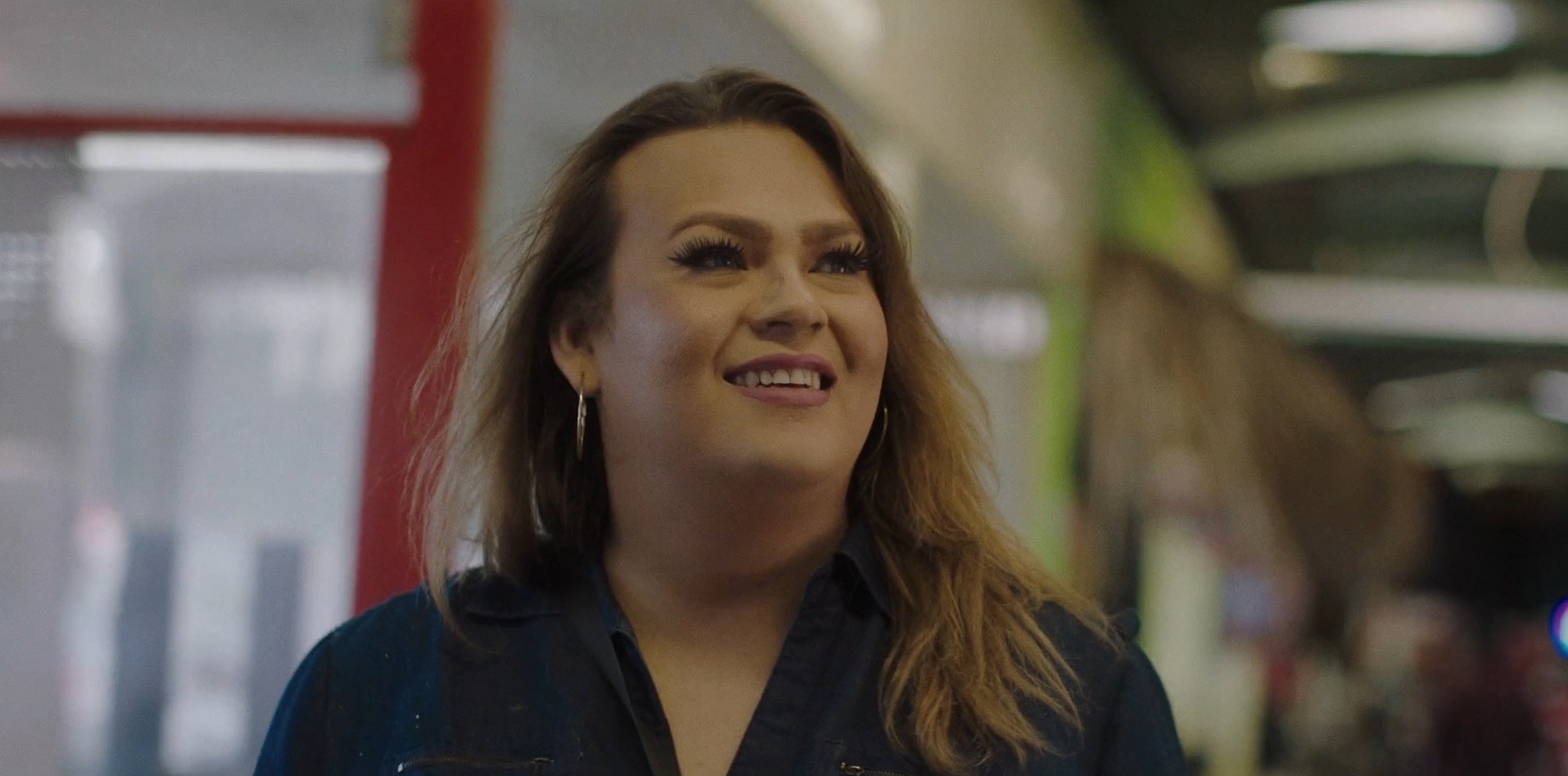
Rebecca in Episode 2
With regards to editing, in terms of getting the best storyline in a short period of time, focus on a key struggle. Like for Rebecca, she had five billion struggles in Texas: health care, her mom (at first she wasn’t accepting), low income. But we were asking ourselves, what is her most compelling story point? It’s immigration. Now, what is the key barrier? And it ended up being her ICE detention. So then we saw that there was a really good three-act in there: detention, getting out of detention, asylum, and reconciliation with her family.
Do you think, with any of the stories from the four episodes, that if you had just told one particular story in 90 minutes, it would have been less impactful versus 30 minutes or less?
TONY: To be honest, I do. I think the power and the impact of that shorter timeframe is just more hard-hitting and while I do think that a lot of stories, including trans stories, deserve a full 90-minute feature, I think in this case, the power of the short is that you can hit the viewer quickly. There’s a change in momentum that happens.
“If you want to tell a trans story as a brand, you can hire trans people”
You already mentioned the project started out in 2016. Was that the origin of TransWave Films?
JAMIE: We started TransWave Films a couple of months before actually officially starting fundraising for Trans in Trumpland. We were really tired of getting hired for gigs just because we were trans filmmakers, we were feeling a little tokenized. We thought it would be important to have one hub where people can come to our trans-run production company, then if you want to tell a trans story as a brand, you can hire trans people instead of cis people, who then hire out to a trans DP or something like that. So for Tony, it was both a political and a career decision to start TransWave Films. And I think Trans in Trumpland is a really great way for people to learn about our company.
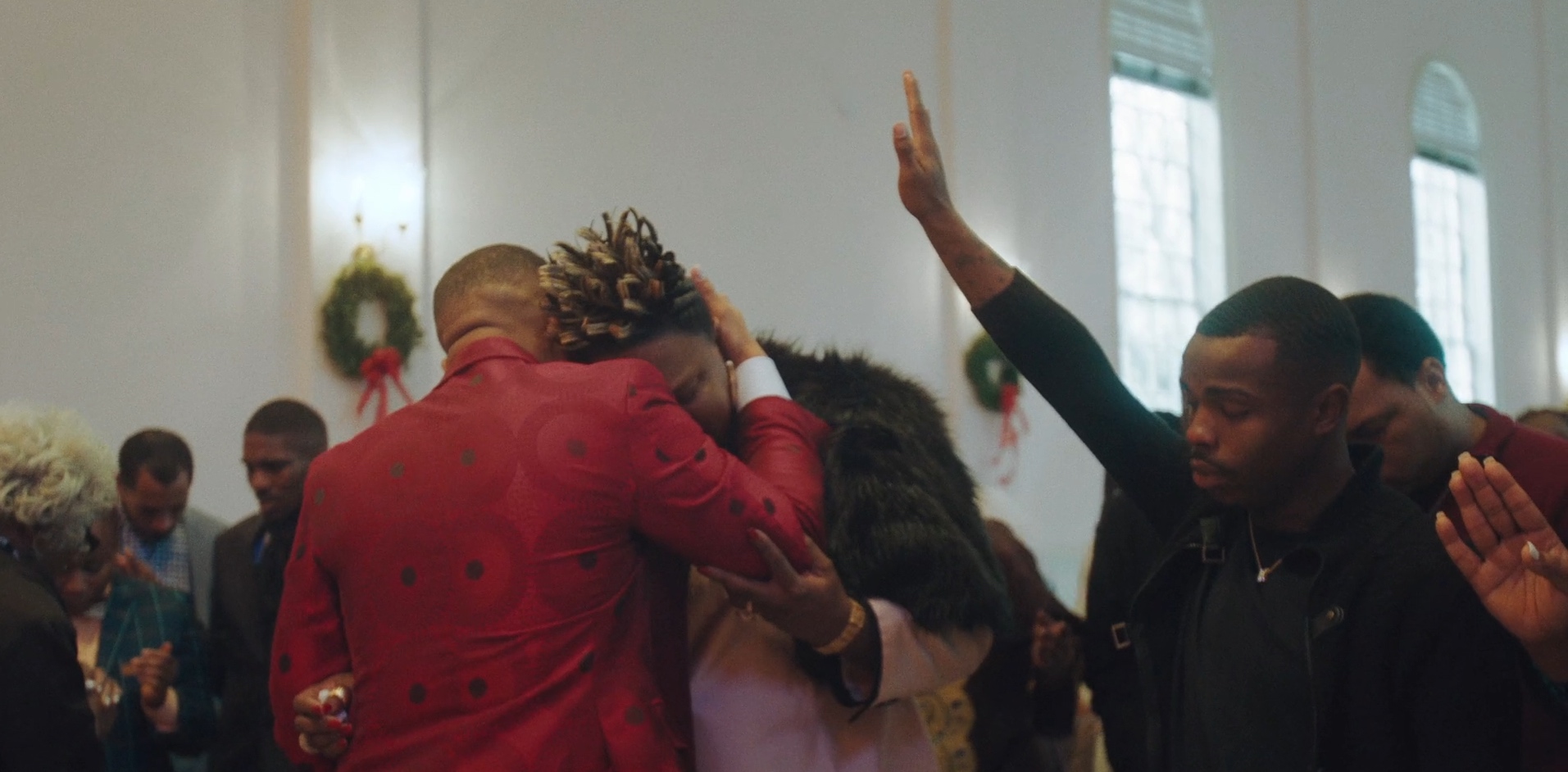
Evonne in Episode 3
TONY: Jamie and I have been working together and been friends since 2013. He edited my first short and I think leading up to this, this might’ve been our fourth or fifth film working together. We realized that we needed to have a production company to keep track of things like expenses and to make sure we were a formal LLC. We knew that after Trans in Trumpland, to get to the next level, we would have to be already established as TransWave Films, so that we could continue to get funding and make features.
I think that could be interesting for aspiring filmmakers, because one might think that it’s a leap of faith to start your own production company and focus on specific stories, but at the end of the day, maybe it even helped you in putting yourself on the map by distinguishing yourselves?
JAMIE: I think so. People are now starting to realize that you should have storytellers that actually know about their subjects. I think that’s just becoming a theme across documentary filmmaking. Then to distinguish yourself as a whole company that deals with getting authentic storytellers to tell authentic stories, I think Tony and I have figured out a place for ourselves in the market, which is really great.
“You can make socially conscious films and become successful”
TONY: There’s a big need for trans stories, especially ones about trans happiness, where there isn’t a lot of coverage, as many films focus on misery and whatnot. For me personally, I love telling unique stories, different stories, character-driven stories, as it really allows marginalized groups in the film world to have a voice, and realize that you can make socially conscious films and become successful.
I think it’s just become easier for Jamie and I to be a cohesive unit since starting TransWave Films. We can help people realize that you can start out as an indie filmmaker, create your own company, become acquired without a festival run, and continue to develop films.
You mentioned earlier with trans stories, it’s hard to get a feature film off the ground still, especially for aspiring filmmakers–trans filmmakers or cis filmmakers–anyone starting out rarely makes a feature out of the gate. What advice would you give trans filmmakers and cis filmmakers to tell them that their voice matters and their stories are worth being told, with shorts as a first step?
TONY: Wow, that’s a good question. I think the first thing would be to find your network. For me, it was connecting with Jamie and realizing he’s a really great editor. We connected in 2013. And from there, our network just grew. Start with either your network from film school, or friends, or people that you really admire. If you admire someone who’s made a feature film or a short that you really like, reach out to them, they’re probably really nice and will be happy to help you.
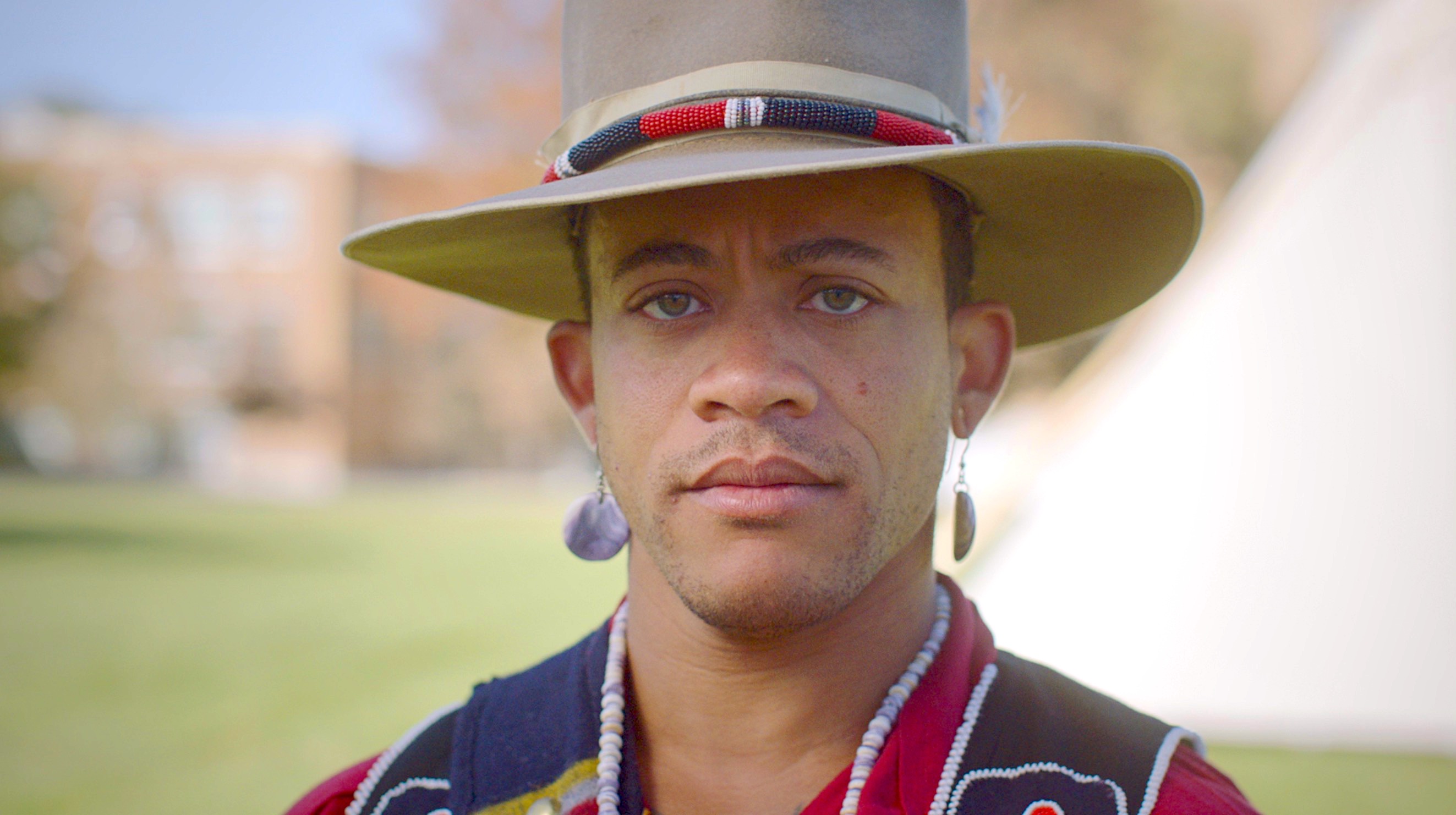
Shane in Episode 4
So that’s where I would start: find your people, find your community in the film industry. Then if you want to tell your story, go for it, you’re probably more interesting than you think. Or if you want to do documentary filmmaking, find someone who has an untold story in a location that hasn’t been featured, or just, in general, a story that hasn’t been told. Think about what message you want to convey? Is it going to be a social change message? Is it going to be something about the environment? There are all kinds of angles.
JAMIE: When you’re first starting out, you really can’t find new people, which is absolutely imperative as a filmmaker, unless you start making stuff. The only tangible way to do that is to start making shorts, that’s how Tony and I started and that’s how we met each other. I think honing your voice is the second most important thing after finding your network, and again, the only way to do that is to keep making stuff.
I think that’s a perfect way to end. It was so great to talk to you.
You as well. Thank you very much.
Some parts of the interview have been edited for brevity and clarity.
All photos and stills courtesy of TransWave Films.
 Georg Csarmann
Georg Csarmann